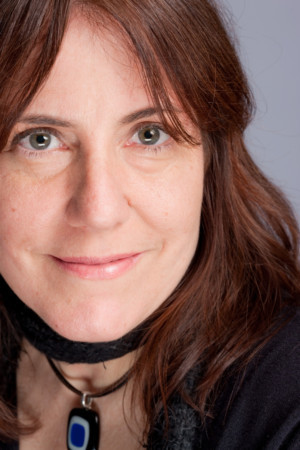Interview: Mona Mansour of THE VAGRANT TRILOGY at Atlas Performing Arts Center

Mona Mansour is a member of The Public Theater's Emerging Writers Group and a resident playwright at New Dramatists. "The Vagrant Trilogy," which follows a Palestinian family over a forty-year period, is comprised of three of her plays: "Urge for Going," which premiered at The Public Theater in New York as a Public LAB production; "The Hour of Feeling," which premiered in 2012 at Actors Theatre of Louisville; and "The Vagrant," which was commissioned by The Public and workshopped at the 2013 Sundance Institute. The Mosaic Theatre production, which opens on June 11th (previews start June 6th), is the first time all three plays will be staged together. "The Vagrant Trilogy" is part of the 2018 Voices from a Changing Middle East Festival.
(This interview has been transcribed from written notes from the conversation.)
What inspired you to write plays that comprise "The Vagrant Trilogy"? Did you feel that presenting the Palestinian experience as a play would perhaps make it easier to discuss, given that history, news, and politics tend to crowd out the human element? Do you consider your writing a form of activism?
The nature of the things I write is not necessarily political - "political" can mean so many things. I'm not looking to educate, but I'm moved - moved to create these worlds and follow these people.
I couldn't say I was an activist playwright. I'm not looking for people to leave the theatre and write to Congress. Shattering people and moving them, but not as clear-cut. The way in is through humanity and recognizing human beings. My goal is to experience humanity - to get angry with them, and to be happy with them.
You've written these three plays separately, and this is the first time they'll be performed together - what unites them?
"Urge for Going" was first - I was investigating my own identity. There was a refugee camp at the southern corner of my father's village in Lebanon, and he had emigrated to the United States himself. Writing the play allowed me explore that - the situation was rather dire, and there's a sense of permanent impermanence. There's limited space, and you can only build up.
From there, I had the idea for a prequel, a moment of glory for these characters before becoming quite small, which led to "The Hour of Feeling." I love to do research, so I looked into 1948 and 1967. The two plays - "Urge for Going" and "The Vagrant" are possible paths or endings for this family. One road, then another. 1967 was a pivot point, and there were two ways it could go. I made this discovery of a deep doubt, but I didn't arrive at it in a conscious way.
Obviously, the politics of the Middle East and global refugee issues play a role in how the show was written, how it's performed, and how it's received. Do you think events in the region (notably the recent decision to move the US Embassy in Israel to Jerusalem) will impact how this show impacts its audience?
We're at an incendiary moment, and it will be on people's minds; we're in the middle of a global crisis. One thing I explore is the psychic cost of displacement. I spoke to a young man from Syria, who swam to Greece and is now in Germany, and he still wants to go back. A lot of people don't understand that. It means something in a way that is undefinable, even if material and physical needs are met. The mother in the plays has to cope with something similar, and it's incomprehensible. She takes her whole life, and has to compartmentalize her love, as a survival mechanism. There's such trauma at the start of these journeys, and on our end? We, the United States, let in twelve people last year. It's shameful. The only morally acceptable thing to do is provide for people.
Even when we think someone is okay, there can still be trauma. People who left, or whose parents left, feel displaced. You're never really from the place you go, or the place you left.
Theaters can be great places of acceptance; I wish they could house people like churches. I also want to give a shout-out to Ari [Roth, the Artistic Director for the Voices From a Changing Middle East]: theaters sometimes gravitate to more narrow narratives. They sometimes can be a bit conservative and steer away from topics they're afraid of.
But I want to tell people: come see the plays. I'm not into politics, but theatre has to take chances. We should question what we're doing and what we're talking about. Discourse has been laid bare. It's important for theatre to have those discussions.
What do you hope audiences take away from "The Vagrant Trilogy"?
I hope you want to see how this couple does. I want people to hear Arabic and find it sexy, to see Arabic in daily life and not just news events. I want the audience to experience a visceral way of knowing these people.
We have a very close cast, and a lot is asked of them. Hadi is very charismatic, and it's been interesting to get his feelings on this since he's from Beirut. But both there and here (he now lives in New York), he hasn't seen many roles that allow him to speak in Arabic.
Are you working on anything else right now?
I always have things on deck, but this feels quite huge, so it's the main focus. I do have a possible play on eco-terrorism that I'm working on this summer.
"The Vagrant Trilogy" starts previews on June 6th and opens on June 11th at the Atlas Performing Arts Center, and runs through July 1st. It is comprised of three one-hour-long plays, with two ten-minute intermissions.
Comments
Videos

